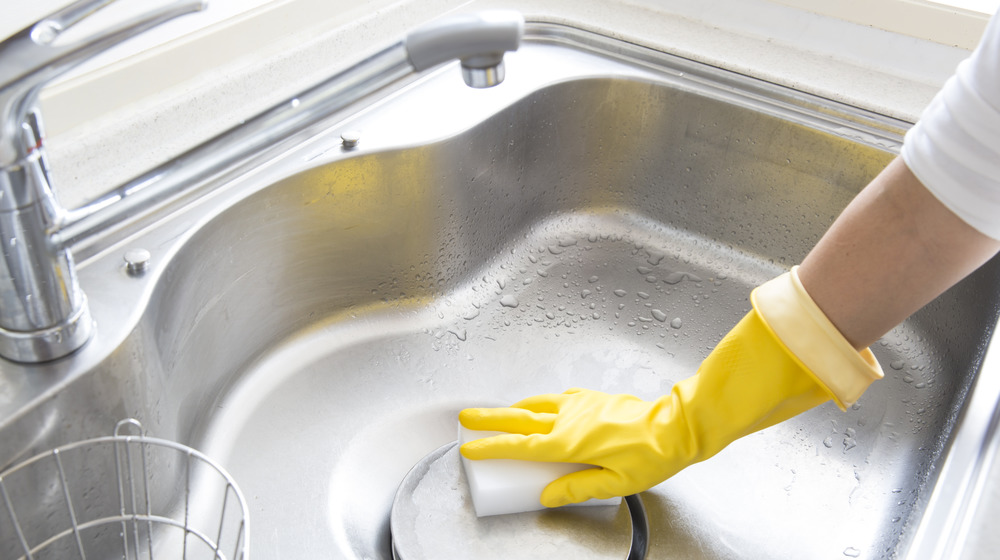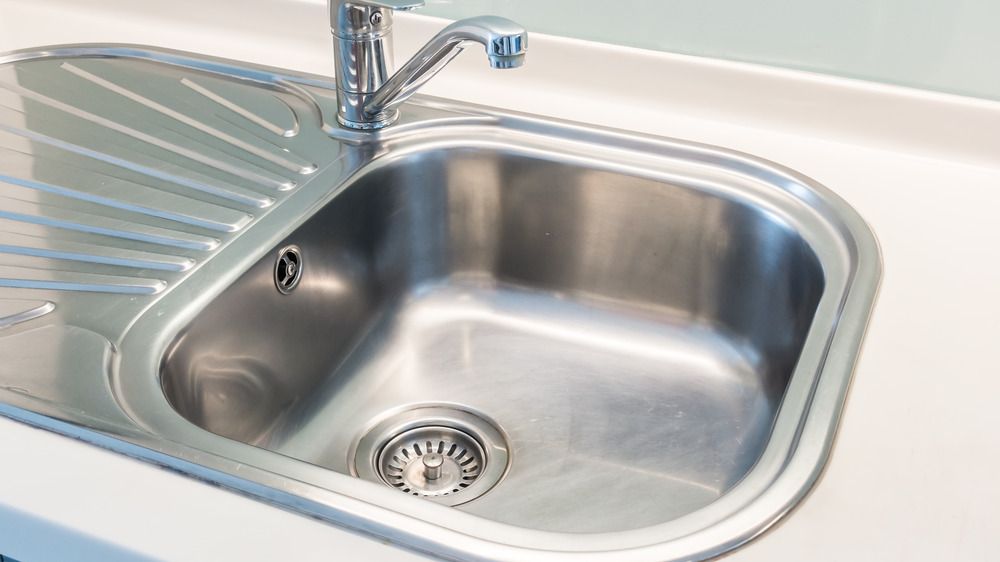How Often Should You Really Clean Your Kitchen Sink?
Your kitchen sink is likely the heart of the kitchen. You probably wash fruit and vegetables with it, and it probably holds your dirty dishes after meals. Perhaps you even use it to wash dishes and other things. Given all the use it gets, your kitchen sink likely gets pretty dirty, and those germs could pose a health problem for your household if you're not cleaning it often enough. It may be challenging to know how often you should clean your kitchen sink. Much like changing sheets, some people tend to overlook scrubbing down this often used area.
According to Bon Appétit, the kitchen sink is the second most germ-filled place in your home, with the sponge coming in as the most germ-filled item. Even if you wash your dishes every day, you might not be cleaning your sink properly after, which can allow for an optimal environment for growing bacteria and other potentially harmful microbes, like E. coli and Salmonella (per NBC News). The germs from the sink could also contaminate your hands when the water splashes onto them. It's likely that you're not disinfecting your sink often enough.
Here's the dirty truth about cleaning your kitchen sink
How often you should wash your kitchen sink actually depends on what you've used it for. Lisa Yakas, a microbiologist and Senior Certification Project Manager of Food Equipment at NSF International, told Bon Appétit that everyone should wash the sink's bottom and sides at least once a week with disinfectant. However, if you've handled raw meat in your sink, you should clean it immediately after you're finished. NBC News took it one step further, recommending that to stay on the safe side, just get into the habit of disinfecting your whole kitchen sink every day.
First, you should use hot water, a bit of dish soap, and a cloth to clean the sink and ensure there aren't any food particles stuck to the surface. If you have a sponge instead of a cloth, be aware of its age. Yakas warned that with a sponge, "There are so many cracks and crevices for germs to hide in, and germs love moisture," which might mean you've simply spread around more germs instead of cleaning (via Bon Appétit).
After that, use a disinfectant like white vinegar diluted with water or the disinfecting cleaner of your choice to finish the job. After disinfecting, rinse thoroughly with water. Finally, once each month, you should clean the drain with one teaspoon of bleach and a quart of water, according to Yakas.
While it may seem like one more chore, cleaning your sink regularly keeps you healthier.

